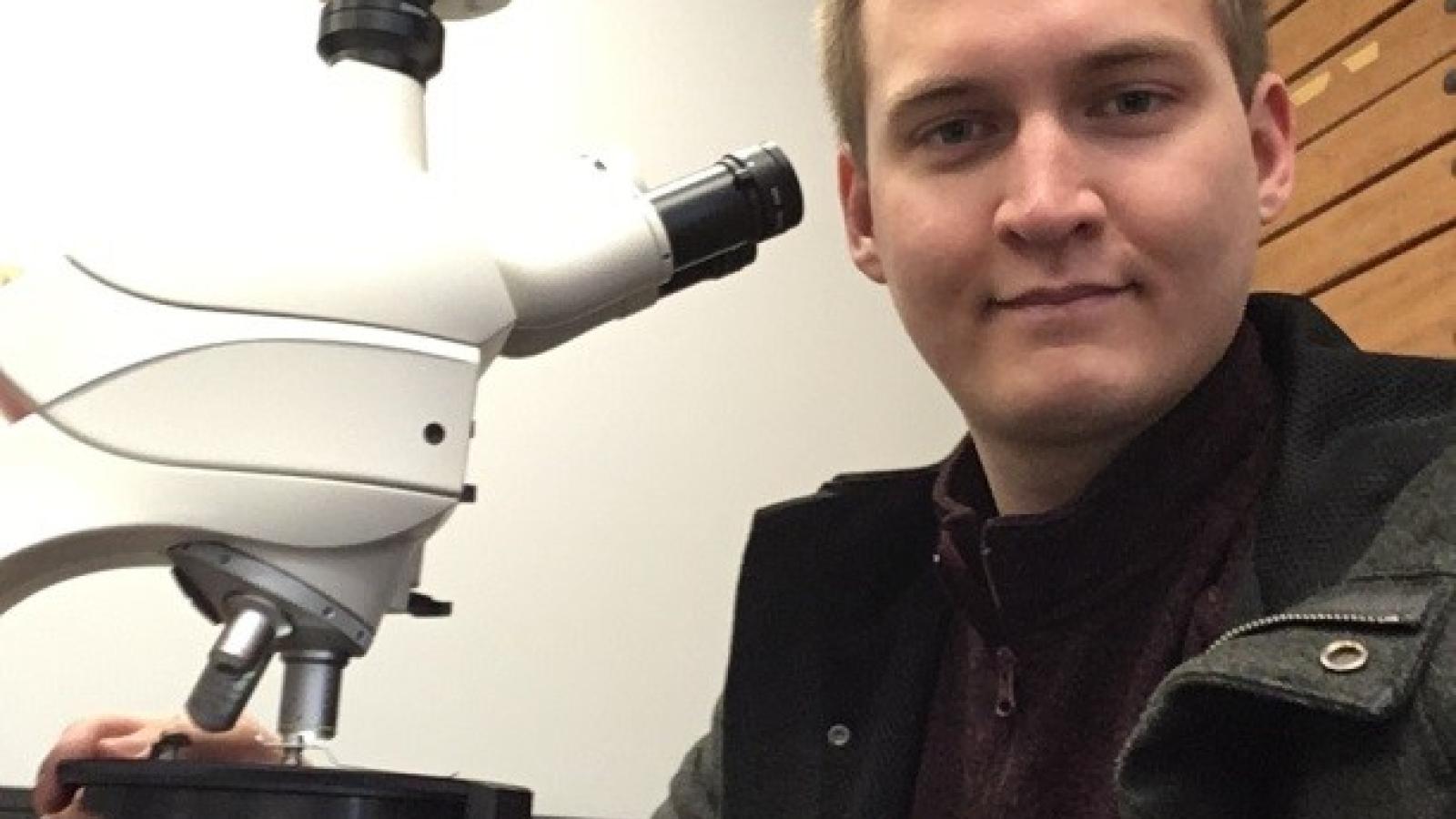Alumni Change Lives featuring Kenneth Peterman
Kenneth Peterman is a doctoral student advised by Dr. Michael Barton. Here he describes how the Friends of Orton Hall furthered his academic career.
My name is Ken Peterman and I am a PhD student researching igneous petrology with Dr. Michael Barton. The goal of my dissertation research is to establish a novel method to accurately characterize the redox state of magmas (whether magmas are relatively reduced or oxidized). Knowledge of the magma redox state, and the exchange of oxygen between earth’s interior and surface, is critical for understanding many geological processes. Specific elements in magmas, notably iron, exist in multiple oxidation states. This influences their geochemical behavior and determines the minerals that crystallize from magma. In principle, it is possible to determine the redox state of lavas from the composition of a ferromagnesian silicate mineral (olivine) in equilibrium with the melt (represented by volcanic glass). A key objective of this research is to obtain accurate chemical analyses of olivines and glasses (melts) in samples of lava collected from Iceland, and to utilize olivine-melt equilibrium to determine magma redox states.
I received funds from Friends of Orton Hall to cover the costs of performing detailed chemical analyses of thin sections of samples collected from Iceland. These samples were analyzed using Electron Probe Microanalysis at the Electron Microbeam Analysis Lab of the University of Michigan. These data will be used to establish the composition of coexisting olivine-glass pairs that represent equilibrium conditions, which will provide tight constraints on the redox state of Icelandic magmas.
Recently, these samples were analyzed using iron K-edge micro-X-ray Absorption Near Edge Structure (XANES) spectroscopy at the Advanced Photon Source of Argonne National Laboratory. This analytical technique measures the proportion of oxidized and reduced species of iron (related to redox state of the magma). Funds from FOH were also used to acquire additional analyses of the major components of the melt to supplement the XANES data. Together, these datasets will be used to evaluate the method based on olivine-melt equilibrium, and to address several critical questions that are the subject of my dissertation research. The most important of these is whether magma redox states are changed significantly by processes operating during ascent from the mantle source region to the surface. I would like to thank Friends of Orton Hall and its donors for making it possible to acquire a wealth of data that will tremendously benefit my research.
The School of Earth Sciences relies on the generous support of our alumni and friends to provide programs, scholarships and facilities that enrich the experience of our students, provide life-changing opportunities, and enable world-changing discoveries. The Friends of Orton Hall gifts are distributed to students in support of degree research work. If you are interested in giving to support the Friends of Orton Hall or other funds, please visit our giving page.
Continue Reading the April Alumni News Notes

